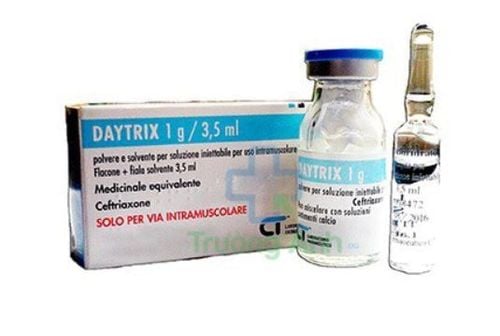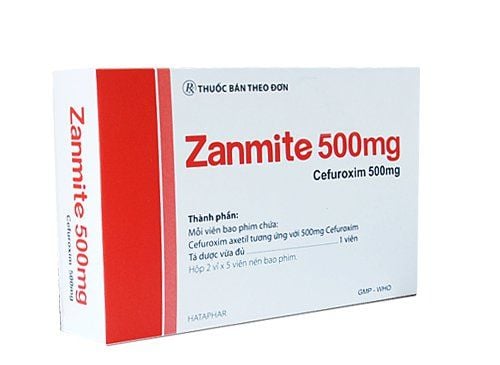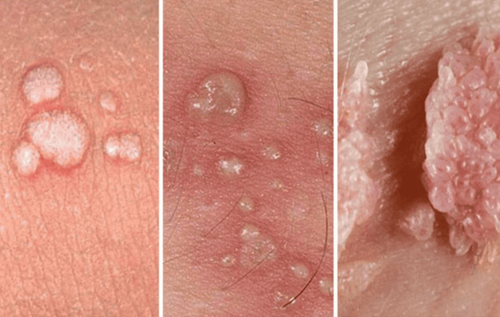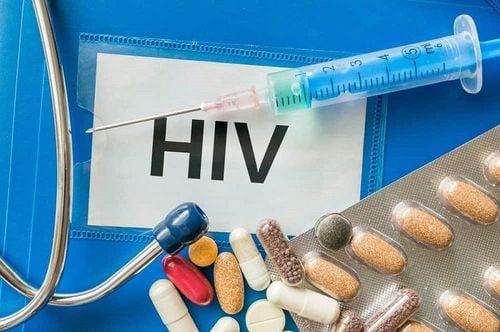This is an automatically translated article.
Most sexually transmitted diseases are not treated promptly, because they have few symptoms after infection. If not tested for sexually transmitted diseases in time and with early treatment, it can leave dangerous complications for health.
1. Sexually Transmitted Diseases (STDs)
Sexually transmitted diseases (STDs) are diseases that are spread through sexual contact with an infected person, including oral, anal, or vaginal sex or by touching the genitals. They can be passed from person to person through blood, semen, and vagina or other bodily fluids such as premature ejaculation.
Sometimes the disease can be spread in other ways, such as from mother to baby during pregnancy or childbirth; contaminated food or water; through contact with infected blood or transfusion or sharing needles...
People should be tested for STDs if:
Have unprotected sex Find out if your partner has STDs Have symptoms symptoms of STDs Think you've been exposed to STDs Sharing injecting equipment Are pregnant

Bệnh truyền qua đường tình dục có thể lây nhiễm từ mẹ sang con
Some STD testing will be done once a year depending on age, sex and lifestyle.
Most sexually transmitted diseases are treatable with medication. However, if not detected early and treated promptly, some STIs can cause serious health problems such as infertility in women and men. What's more, they may also be at increased risk for STDs like HIV.
The disease can be spread even if there are no signs of symptoms. So testing is the only way to know for sure if you are infected.
2. STDs . Tests
2.1. Chlamydia
Chlamydia is a virus that causes disease in humans through genital infections. Chlamydia can be difficult to detect because early-stage infections often cause few or no signs and symptoms. When they do occur, symptoms usually begin one to three weeks after you are exposed to chlamydia and can be mild and go away quickly.
Signs and symptoms may include: painful urination, lower abdominal pain, vaginal discharge in women, pain during intercourse in women, bleeding between periods in women, testicular pain in men gender.
Chlamydia test is done through a urinalysis or through a swab inside the penis in men or the cervix in women. These samples will be analyzed in a laboratory.

Xét nghiệm nước tiểu cho phép chẩn đoán bệnh Chlamydia
2.2. Gonorrhea
Gonorrhea is a bacterial infection of the genital tract. The bacteria can also grow in the mouth, throat, eyes, and anus. The first symptoms of gonorrhea usually appear within 10 days of exposure. However, some people can be infected for months before signs or symptoms occur. Symptoms of gonorrhea can include:
Thick, cloudy or bloody discharge from the penis or vagina Pain or burning sensation when urinating Heavy menstrual bleeding or bleeding between periods Pain, swelling Testicles Peristalsis Peristalsis Anal itching The test for gonorrhea is done with a urinalysis or via a swab inside the penis in men or the cervix in women. These samples will be analyzed in a laboratory.

Ngứa hậu môn là triệu chứng phổ biến của bệnh lậu
2.3. Hepatitis B and C
Hepatitis B and hepatitis C are both contagious viral infections that affect the liver. Hepatitis B and C are the most serious of the three, but each can cause the liver to become inflamed.
Some people may not develop symptoms during the illness. But others may have some symptoms that occur after a few weeks of exposure such as: fatigue, nausea and vomiting, abdominal pain, especially the right liver area below the lower ribs, loss of appetite, fever, dark urine, muscle pain, jaundice and yellow irises, ...
Hepatitis B and hepatitis C tests will be done by your doctor by drawing blood. This blood sample will be tested in a laboratory.
2.4. Syphilis
Syphilis is a bacterial infection. The disease affects the genitals, skin, and mucous membranes, but it can also involve many other parts of the body, including the brain and heart.
Signs of syphilis can occur in three stages - primary, secondary and tertiary. However, some people can experience a latent syphilis stage in which blood test positive for bacteria but no symptoms.
Syphilis in the early stages usually appears at the site of infection such as the genitals, rectum, tongue or lips. When the disease is more severe, the symptoms can be red or brown rash, fever, enlarged lymph nodes, fatigue, paralysis, blindness, dementia... If not treated in time, syphilis bacteria can cause serious organ damage and even death years after infection.
The syphilis test will be done by your doctor by taking blood or a swab from any genital sores. These samples will be tested in a laboratory.
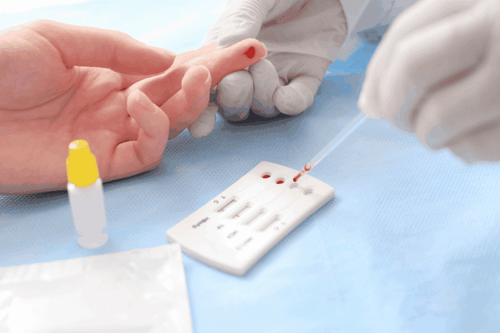
Xét nghiệm viêm giang mai nhằm chẩn đoán và điều trị bệnh sớm
2.6. Herpes 1 and 2
Herpes is a highly contagious disease caused by the herpes simplex virus (HSV) that enters the body through small cracks in the skin or mucous membranes. Most people infected with this virus are unaware because it shows no noticeable symptoms. When the symptoms of the disease are detected, the disease begins to get worse.
Signs of disease include: small orange bumps, blisters, or sores in the genital and anal areas or areas around them; pain or itching around the genital area, buttocks and inner thighs... In the early stages, it can be flu-like symptoms, headache, muscle aches, fever, swollen lymph nodes in the groin.
Herpes test will be done by your doctor by taking a tissue or culture of a blister or sore. These will be taken and tested in a laboratory. Blood tests can also help detect past herpes infections, but results are not always conclusive.
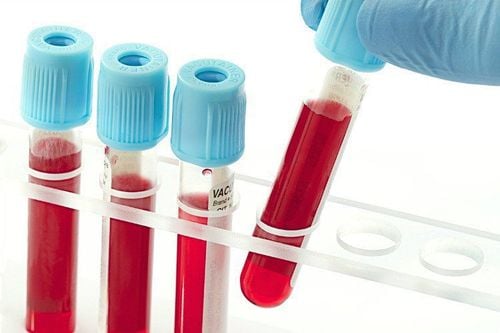
Xét nghiệm máu giúp phát hiện nhiễm trùng herpes trong quá khứ
Several blood tests can help distinguish between the two main types of herpes viruses:
Herpes 1 is the virus that usually causes cold sores, although it can also cause genital sores. Herpes 2 is the virus that causes genital sores more often. However, the results may not be completely clear, depending on the sensitivity of the test and the stage of the infection. False positives and false negatives are possible.
2.7. HIV 1 and 2
HIV is a viral infection that causes human immunodeficiency. HIV interferes with the body's ability to fight off disease-causing viruses, bacteria, and fungi, and it can lead to AIDS, a chronic, life-threatening illness.
Symptoms of the disease when newly infected are almost absent. However, in some people, flu-like symptoms appear, usually 2 to 6 weeks after infection. But these symptoms are also completely unclear. So, the only way to know if you have HIV is to get tested.
HIV test will find the virus in blood or saliva. This test is done in a laboratory by your doctor. HIV is of two types:
HIV 1: this is found worldwide HIV 2: this is mainly found in West Africa. But it has also spread to the United States. Testing helps to diagnose sexually transmitted diseases early, making treatment more effective. Not only that, it also helps prevent the spread of disease from one person to another.
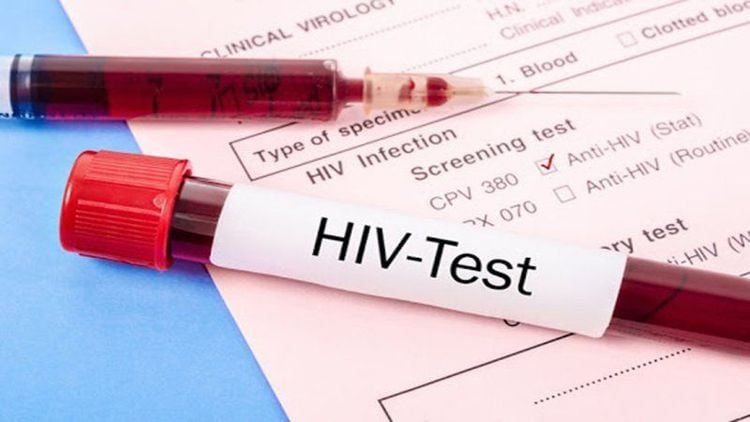
HIV là một bệnh lây truyền qua đường tình dục
3. Measures to prevent sexually transmitted diseases
3.1. Behavioral counseling and outreach
Counseling and behavioral interventions provide prevention against sexually transmitted diseases including HIV, or unwanted pregnancy. This approach includes:
Comprehensive sex education Sexual counseling, condom use recommendation The intervention is applied to target groups such as: the main population, sex workers, people who inject drugs. drugs...

Khuyến khích sử bao cao su giúp ngăn ngừa các bệnh lấy nhiễm qua đường tình dục
3.2. Barrier method
When used correctly and consistently, condoms provide one of the most effective methods of protection against sexually transmitted diseases, including HIV.
Above is knowledge about common sexually transmitted diseases, they always have potential dangers to people's mental health and life. Therefore, when the body shows strange signs, we should visit reputable facilities and quickly have an appropriate treatment regimen.
Package of Social Diseases Examination and Screening of Vinmec International General Hospital helps customers to screen for social diseases in order to detect diseases early for effective treatment and avoid complications.
Package of screening for social diseases for all ages, for both men and women. For advice and to book an appointment, you can contact HERE.
References: webmd.com, who.int, mayoclinic.org




